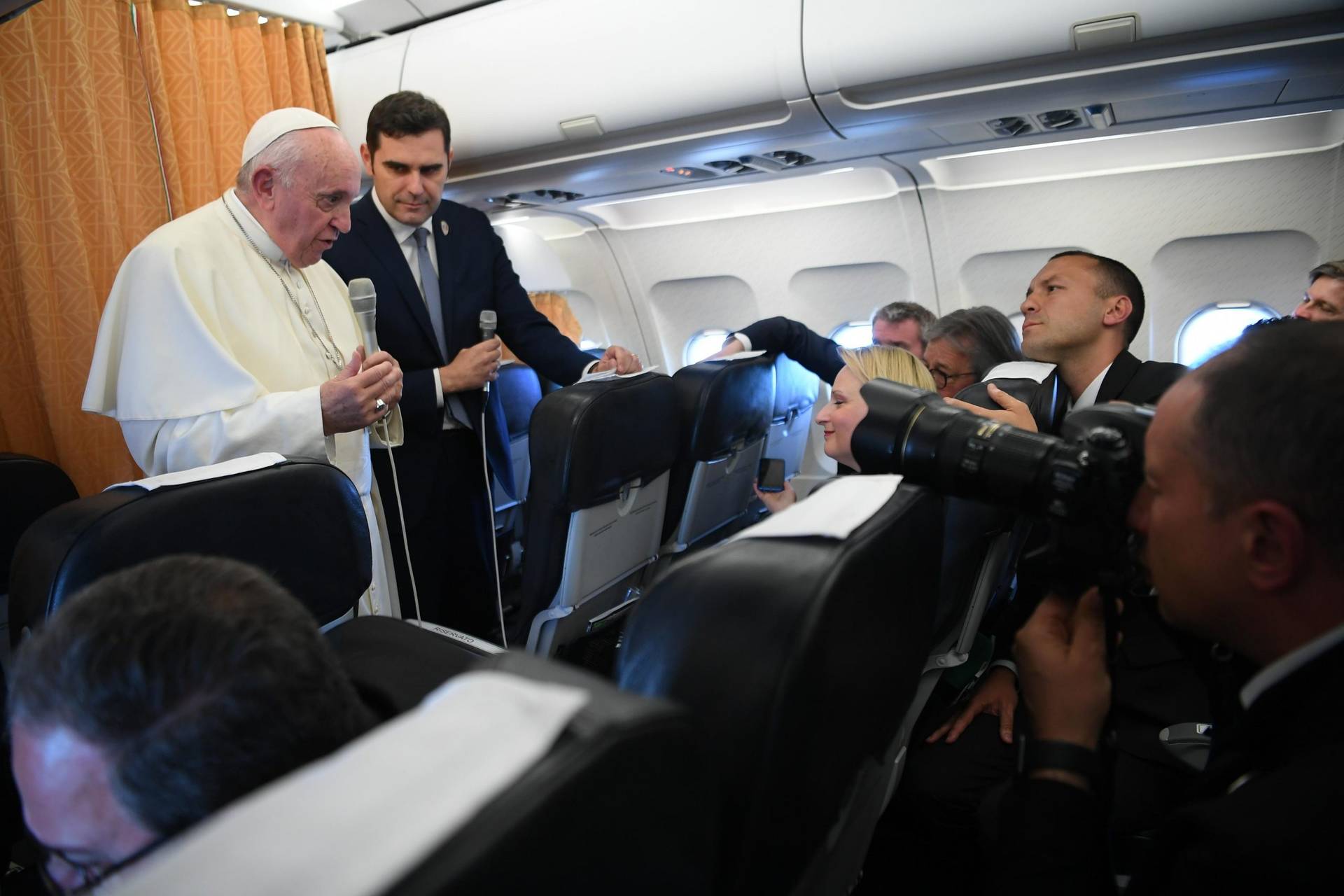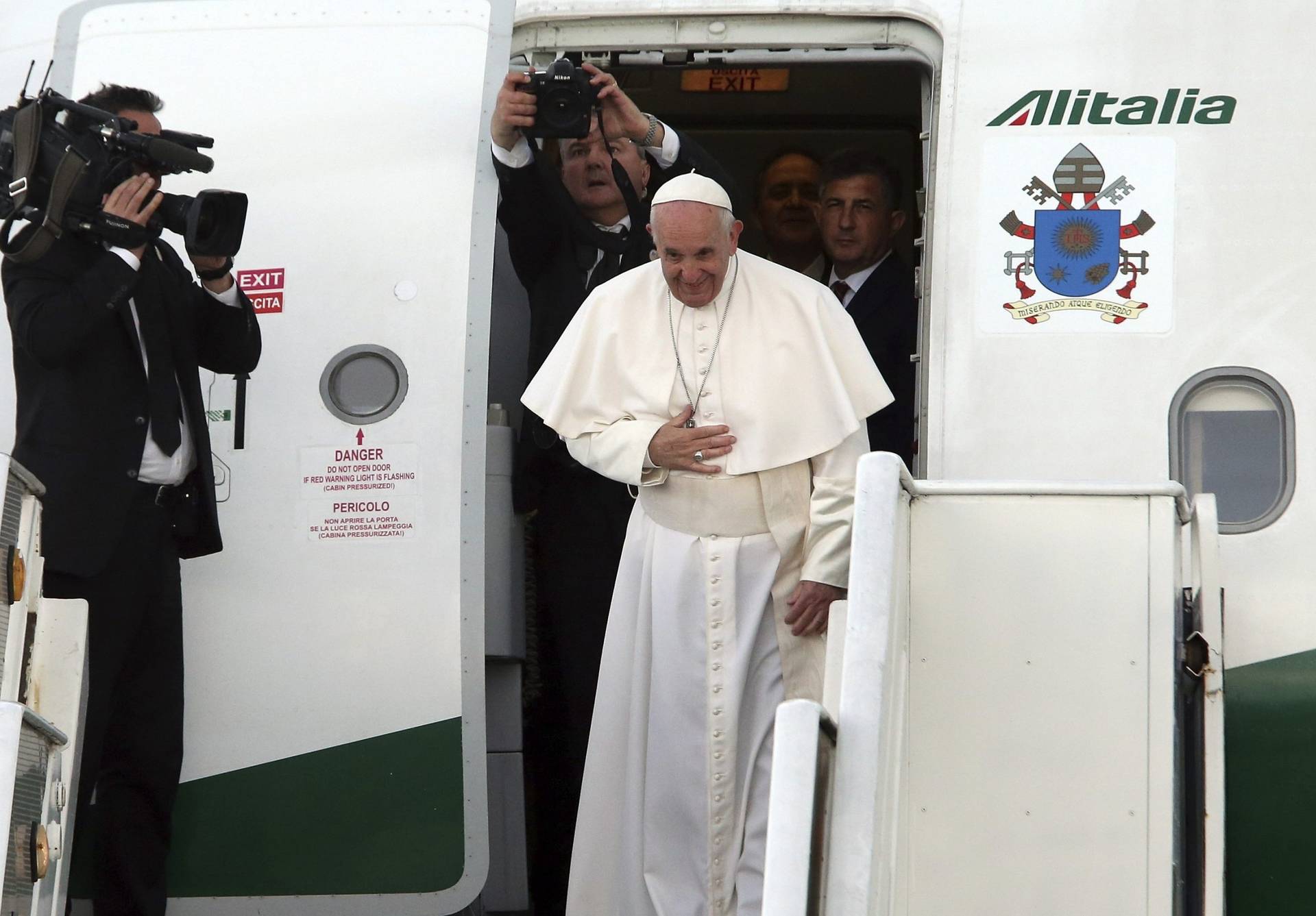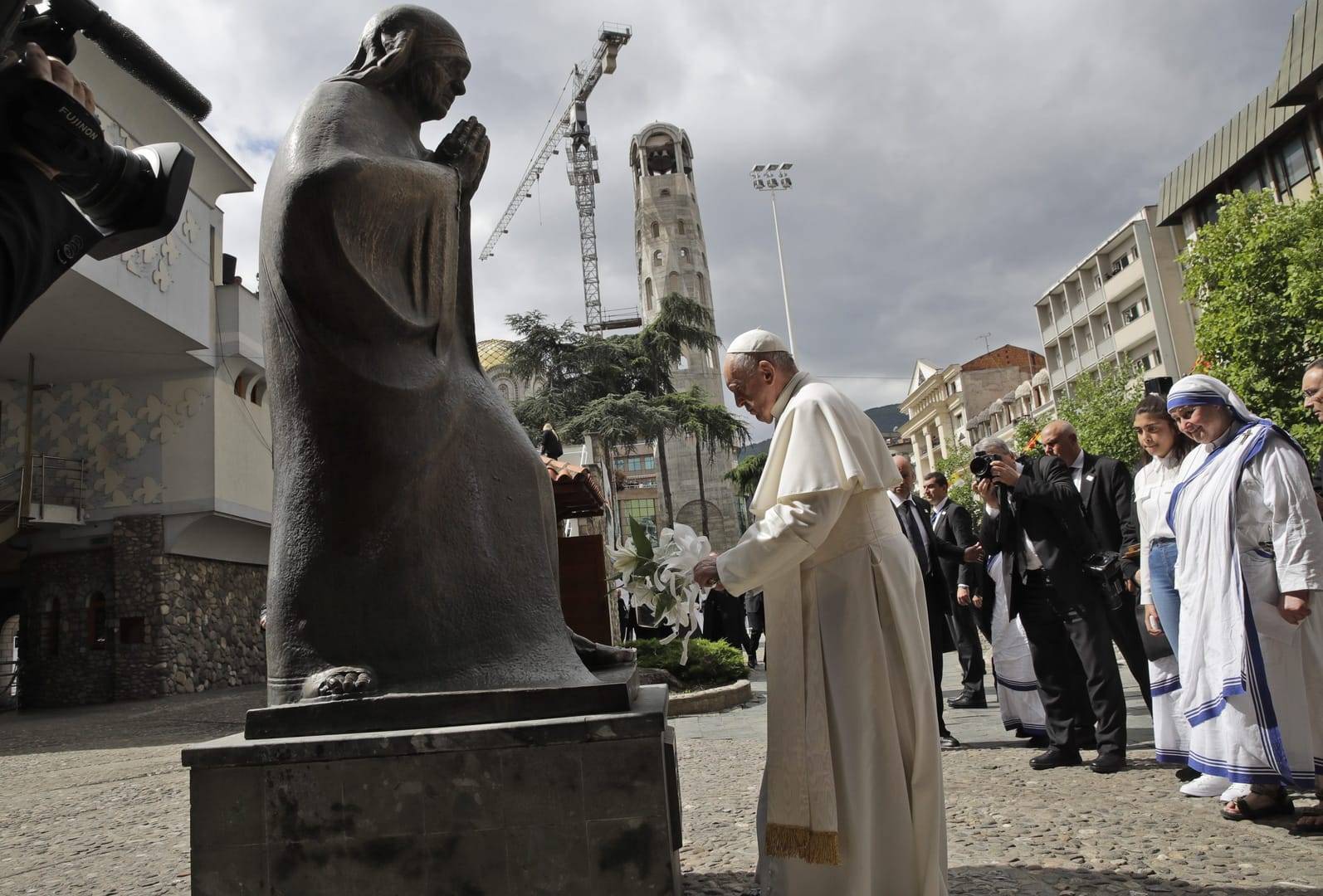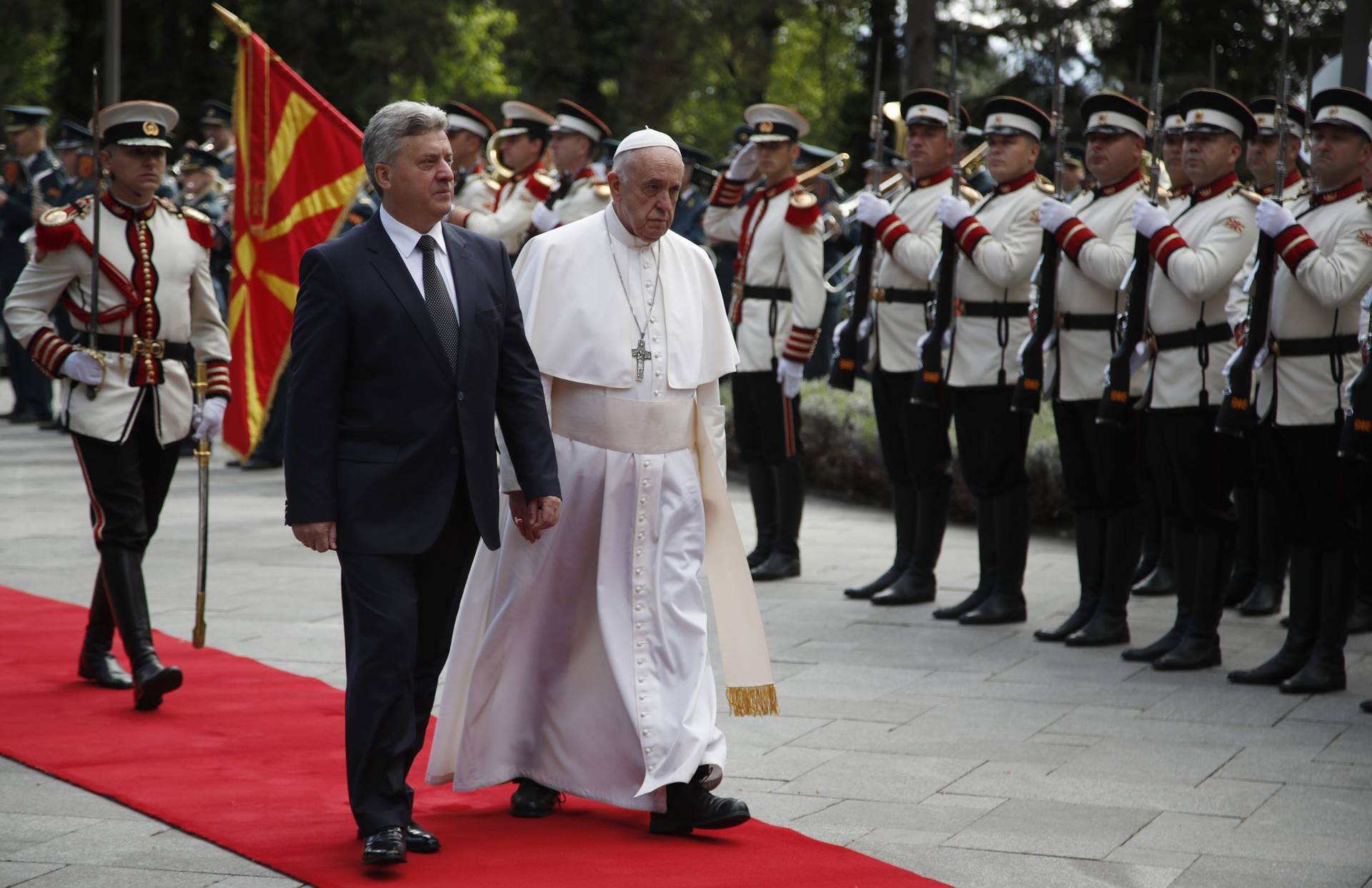SKOPJE – After paying a brief visit to Mother Teresa’s shrine shortly after landing in Skopje Tuesday, Pope Francis hit out at fake news during his homily, saying the spread of disinformation makes people prisoners to disgrace.
Reflecting on the day’s Gospel passage recounting Jesus’ multiplication of the loaves and fish, Francis said that in general, “We have become accustomed to eating the stale bread of disinformation, ending up as prisoners of dishonor, labels and ignominy.”
“We thought that conformism would satisfy our thirst, yet we ended up drinking only indifference and insensitivity. We fed ourselves on dreams of splendor and grandeur, and ended up consuming distraction, insularity and solitude. We gorged ourselves on networking, and lost the taste of fraternity,” he said.
In looking for “quick and safe results,” instead of finding them, the result has been finding oneself “overwhelmed by impatience and anxiety. Prisoners of a virtual reality, we lost the taste and flavor of the truly real.”
Though he has warned against the spread of fake news and condemned disinformation in the past, the pope’s words take on special meaning in North Macedonia, where a recent fake news mishap left many migrants and refugees stranded in a cloud of tear gas.
In early April, there was a scuffle at the Greek border with North Macedonia when rumors spread on social media that the borders, which were closed in 2016 in a bid to crack down on the number of migrants funneling through Europe, had opened.
Those rumors turned out to be false, and the thousands of migrants and refugees who flocked to the border were met by Greek police, who used tear gas to push back the crowds after clashes broke out.
Migrants who came to the border pitched tents determined to wait things out, preferring to stay there rather than return to camps, however, they were eventually loaded onto buses and taken back to camps throughout Greece.
The incident highlighted the frustrations and anger that many migrants feel, as well as the exasperation of state authorities perplexed as to how to solve the problem.
When the migration crisis erupted in 2015, tens of thousands of Syrians, Iraqis and Afghanis made their way to Greece in a bid to cross into northern Europe, however, the Balkan countries shut down their borders in 2016, leaving many people stranded.
Greece’s asylum system has been overwhelmed for years, and more than 70,000 migrants and refugees are still living throughout the country, with most stuck in limbo either waiting to gain asylum or move on to other countries across Europe.
Migration has been a top priority of Francis’s papacy, and it has also emerged as a major theme during his May 5-6 trip to Bulgaria and Macedonia.
After landing in Bulgaria Sunday, where the border is sealed with a barbed-wire fence, the pope offered a “respectful suggestion” to Bulgarians not to “close your eyes, your hearts or your hands – in accordance with your best tradition – to those who knock at your door.”
In his speech to Macedonian authorities Tuesday, Francis thanked the country for hosting the migrants and refugees stranded after the closing of the borders in 2016, saying the welcome and assistance given to the vast number of migrants and refugees fleeing violence in the Middle East “does you honor.”
Shortly after meeting with Macedonian president Gjorge Ivanov and Prime Minister Zoran Zaev, the pope stopped by a shrine dedicated to St. Teresa of Calcutta, commonly called “Mother Teresa,” where he met the poor. The shrine is located on the site of the church of the Sacred Heart, where she was baptized.
He led a short prayer at the shrine, noting that Skopje was where the seeds of faith were first planted for Mother Teresa, and it is also the place where she first came into contact with the poor and disadvantaged, and where she felt the call of God to give her life in service to these people.
“Docile to your Spirit, she became the prayerful cry of the poor and of all those who hunger and thirst for justice,” he said, and asked Mother Teresa to intercede “that we too may obtain the grace to be watchful and attentive to the cry of the poor, those deprived of their rights, the sick, the outcast and the least of our brothers and sisters.”
He prayed for the grace “to become signs of love and hope in our own day, when so many are poor, abandoned, marginalized and migrants.”
He asked that “our love not only be on our lips,” but that it “be effective and genuine, so that we may bear credible witness to the Church whose duty it is to proclaim the Good News to the poor, freedom to prisoners, joy to the afflicted and the grace of salvation to all.”
During his homily for Mass, Francis urged faithful to recognize their hunger for God and for brotherhood.
Mother Teresa, whose “I Thirst” meditation reflecting on Jesus on the cross has become famous among Catholics, “knew all this, and desired to build her life on the twin pillars of Jesus incarnate in the Eucharist and Jesus incarnate in the poor,” he said.
“She went to the Lord exactly as she went to the despised, the unloved, the lonely and the forgotten,” he said, and in drawing near to these people, “she found the face of the Lord, for she knew that love of God and love of neighbor become one: in the least of the brethren we find Jesus himself, and in Jesus we find God. And that love alone was capable of satisfying her hunger.”













